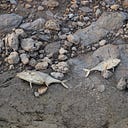Kenya coal mining: status quo from Mui Basin, Kitui
[pending review for accuracy]
There are several indications that plans for coal mining industry development in Mui Basin, Kitui, are moving forward.
In its recently published Statistics Report 2019, the Energy and Petroleum Regulatory Authority (EPRA) noted, “To fast track exploration, development and production, the Government has decided to concession all four blocks to private companies through a competitive international bidding process,” as reported by Business Daily.
In October 2020, The Star reported that Centre for Human Rights and Civic Education (CHRCE), based in Mwingi, produced a new report on the status and called on coal mining contractors to disclose their plans or quit:
In a report titled Summary Investment Chain Report: Mui Basin Coal Mines, the NGO says residents have remained in the dark nearly a decade after the initial concession for mining coal in the Mui Coal basin was awarded.
Throughout 2020, local Kitui residents have observed several concerning developments. Community organisations continue to demand updates and transparency. Legally, environmental impact assessments are required by law before coal projects are commenced, but there has been no indication to date that EIAs have been completed for Mui Basin. For further history, an overview and timeline of coal mining development can be found here.
In the Mui Basin areas delineated for mining as Blocks C and D, local residents encountered unknown visitors arriving in large vehicles to visit the site; the visitors were presumed to be potential mining developers.
Also, the National Road Authority has been moving quickly on the development of roads to Zombe, Block A, despite little economic activity requiring such roads, suggesting that the government intends to move coal by lorry for export. Road construction has been completed through Mui, passing through Mwingi town, and is currently at Kabati. The initially planned railway extension had been deemed overly expensive in the environmental impact assessment for Lamu coal plant, which was potentially to receive the coal for processing. Whether for processing in a future coal plant or for export, the coal must reach Kenya’s coast.
Opinion pieces supporting coal mining were also published, despite no significant public updates regarding mining plans. On 2 September 2020, The Star stated that Kenya is “undecided” about coal mining and “at crossroads over whether to mine 400 million tons of coal in the Mui Basin in Kitui county”. In an editorial on 4 September, The Star sought to differentiate proposed Mui Basin coal mining from the controversial Lamu coal plant project, which has faced growing public skepticism and opposition. The Star argued in an editorial entitled “Mui Basin is different to Lamu Coal project”: “Mui should not be judged by the same yardstick as Lamu. Exploiting the Mui Basin would not be environmentally friendly. But it would bring development to Kitui and Kenya would not waste precious forex importing coal for power generation from outside the country.”
Kenya’s coal mining plans had seemed largely dormant for years, aside from occasional public statements by government officials and politicians in which they vowed to develop the industry, particularly statements from new leadership from 2017 to 2019.
Overall, public information on these plans has been perpetually scarce, prompting concerned community organisations to call repeatedly for more transparency and engagement. In 2019 community members formally appealed to Parliament to take up the matter, which led to the issuance of a report, and no known further action.
Coal concessions for a portion of the area had been awarded in 2012. Public interest litigation culminated in a ruling in favour of the agricultural community in 2015, but did not halt the endeavour.
The community has remained watchful. The Centre for Human Rights and Civic Education (CHRCE), based in Mwingi, has engaged in efforts to clarify and solidify land ownership and minimise the loss of traditionally held land by agriculturalists. Coal mining in the region could displace 100,000 households.
Community awareness and information levels also remain quite low, despite the dogged efforts of community based organisations, who work with limited resources — and few available details of coal mining plans — across a population of one million residents in Kitui County. As CHRCE reported, with little information and contractors “hibernating” for many years, Kitui residents are concerned and anxious.
The Covid 19 pandemic has added an additional challenge to the health and economic wellbeing and livelihoods of residents, as well as to the operations of community outreach, which normally takes plans through in-person gatherings. As of October 2020, meetings are restricted to ten people or fewer, everyone must wear masks, and the organisations must provide hand sanitiser, handwashing facilities, and every measure to stay safe and clean.
